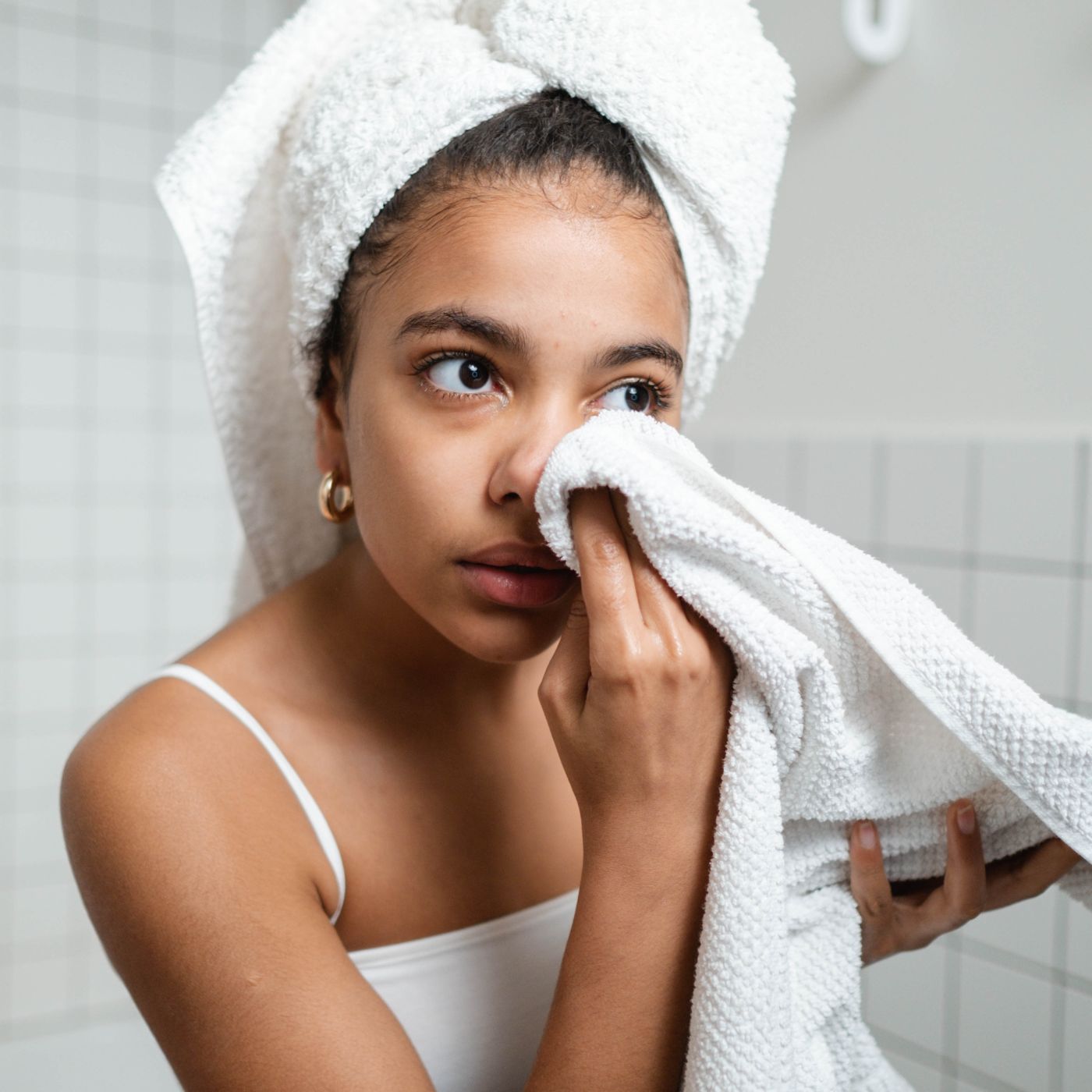
Do you break out in a cold sweat at the thought of trying a new skincare routine? Maybe your original one is just not doing you any good, but the reluctance to try something new and unknown is very off putting. Kind of like a break up.
What is one of the biggest fears when it comes to changing up your skincare routine?
Breakouts!
Why does your skin gotta betray you like that, when you’re trying to do your best for it?
But did you know that your skin might actually just be purging, and not breaking out, as your skin adjusts and starts to benefit from the new skincare.
What do you think of when you hear “purging”? Probably nothing pretty. Skin purging? No, thanks!
But what if it is good for you? Let’s break it down, and see how it differs from a breakout.
What even is skin purging?
The term ‘skin purging’ refers to a reaction to an active ingredient that is increasing skin cell turnover rate. As skin cell turnover speeds up, the skin starts shedding dead skin cells faster than normal.
The end goal? To expose the fresh skin cells underneath and reveal clearer, younger-looking skin.
But ever heard the saying, “The darkest hour comes before the dawn”?
Before these new, healthy cells can cycle to the surface, some other stuff has to rise to the top first, like the excess sebum, flakes, and buildup that clogs pores (aka, all the makings of a pimple or two… or 10). This is what’s not so glamorously known as “skin purging.”
As the surface layer of skin is shed more quickly, our skin is accelerating its recovery and pushing everything to the surface. A purge period can prompt all kinds of pimples. It may look different from person to person, but you can get a mix of whiteheads, blackheads, papules, pustules, cysts, and even the tiny ‘pre-pimples’ that aren’t visible to the eye, called microcomedones. These microcomedones are small clogged hair particles, and can take up to 8 weeks to surface!
How breakouts work
Breakouts and acne occur when the pores of your skin become blocked with oil, dead skin, or bacteria.
Each pore of your skin is the opening to a follicle. The follicle is made up of a hair and a sebaceous (oil) gland.
The oil gland releases sebum (oil), which travels up the hair, out of the pore, and onto your skin. The sebum keeps your skin lubricated and soft.
One or more problems in this lubrication process can cause acne. It can occur when:
- too much oil is produced by your follicles
- dead skin cells accumulate in your pores
- bacteria build up in your pores
These problems contribute to the development of acne. A pimple appears when bacteria grow in a clogged pore and the oil is unable to escape.
How is a breakout different from skin purging?
Breakouts can be caused by introducing any kind of new product to your routine, depending on what your skin may be sensitive to, whereas skin purging will likely be triggered by products with powerful active ingredients.
Breakouts may also appear in areas where you don’t usually have issues. For example, you could see breakouts on your cheeks, when you will usually only see pimples on your forehead. In contrast, purging will usually occur in the areas you do have skin issues already, as it pushes the problematic dirt and oil to the surface.
And the most important point of all, skin purging will not last forever! Depending on the product and your skin, skin purging can last between 4 - 6 weeks, and once it passes, your skin should emerge fresh and clear.
Breakouts, on the other hand, will most likely continue to occur with the ongoing use of the new product, and will result in worsening skin condition, not improved!
Our top tips for surviving a skin purge?
Many of our customers, when first making the switch to our revolutionary 3-step process, report skin flare-ups before seeing improvements. So when this happens, make sure you:
- Don’t pick at or squeeze any bumps or blackheads or whiteheads or whatever may appear. Aggravating your skin will only hinder the process, as touching your face or squeezing pimples will transfer bacteria from your hands to your face, and can cause mechanical damage to your skin, leaving it open to infection.
- Don’t use any drying acne products, eg. containing benzoyl peroxide or alcohol. Your skin is going through its process of clearing out the “junk” from your pores - further acne products won’t help.
- Don’t give up! Be consistent with your new GoodieCo process, and the results will speak for themselves, you may just need to patient while they do their work!
- Do wash your hands thoroughly first if you need to touch your face. Your hands do a million and one things in a day, not to mention what they have come into contact with! Its always good practice to give your hands a good soaping before applying anything to your face.
- Do try to limit your intake of sugar and dairy. Diet has been shown to directly affect our skin - dairy and sugar can be the culprits when it comes to problematic skin.
- Do try to use less makeup so that your skin can regenerate without further clogging of pores.
- Do get lots of good sleep! This is essential for your skin regeneration cycle.
